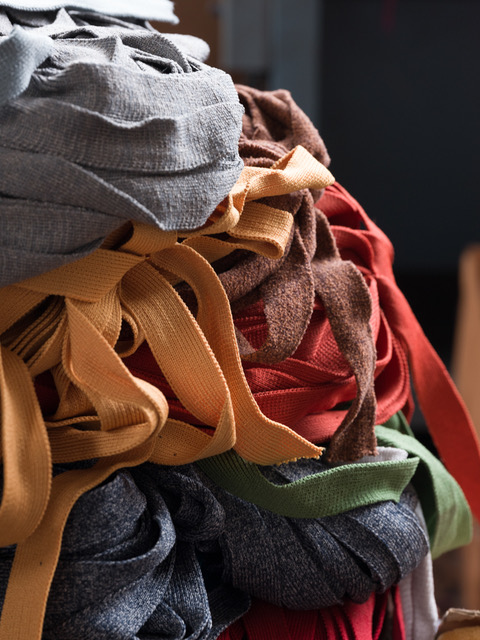We can all agree that sustainability is an increasingly important conversation in the hospitality industry (and beyond). But it’s also a conversation that’s fraught with misunderstanding and misrepresentation, which makes it hard to navigate, to say the least. (Take “greenwashing,” which is a prevalent term in the textile industry: up to 78% of people are not aware of this misrepresentation, as noted in a recent article in InspireDesign by Mary Holt, Chief Design Strategist at Carnegie Fabrics.)
The design process justifiably focuses on the aesthetics and initial cost of materials, but this point of the process is also critical for sustainability, since a green product must be conceived at the design stage versus converted in the production cycle. Large amounts of PVC are part of standard design packages, although it is toxic, highly flammable in development and virtually non-recyclable.
Recently, I attended a sustainability panel at an industry conference, and you could tell that the audience was thinking “blah, blah, blah, we’ve heard it all before” as their focus turned to their mobile devices. It’s all well and good to have a goal, but the reality is that everything out there is a mixture of good news and bad news, and our current actions remain inadequate in arresting climate change. In textiles, there are things that perform well in this conversation and things that don’t. I don’t know of any fiber that can make a textile that is perfect in the hospitality setting… you make trade-offs, including sustainability, since environmental performance is also a factor, and the decision should be made based on performance factors – not marketing.
Traditional fibers such as cotton and wool come with some advantages in use, but processing the fibers and use in the hotel environment deserve consideration:
- Conventional cotton grown in large quantities requires an abundance of pesticides and a heavy reliance on irrigation to produce the largest possible yield, and its requirements for nutrients from the soil are substantial, thus requiring fields to be amended prior to the growing season. Land appropriation for non-food agriculture will be highly scrutinized toward midcentury and beyond. Cotton may become more of a luxury material as a result.
- Recycled cotton consists of short “chopped” staple fibers, and thus continues to shed fiber in use and in the laundry process. Although it can be washed commercially, the fiber absorbs water and, therefore, becomes heavy (like a towel), and requires an extended drying period with the possibility of affecting dimensional stability – think of that favorite cotton sweater that is now wider than it is tall! Although there are no fire standards for the hotel bed, cotton can be treated for FR and ideally should be retreated periodically to maintain the efficacy, which is unlikely to be done.
- Wool is always the “gold standard” for blankets. The comfort, color, textile stability, and tradition is well known and documented. Disadvantages include the greenhouse gas emissions of the sheep, the pushback against animal products, detergents used in the cleaning process following shearing, and the dyes and heat needed to penetrate the fiber with color. When used in the hotel, it is inherently fire retardant, but this quality is diminished when dry cleaned as the process leaves a deposit of cleaning chemicals, which can coat the wool fiber over time.
“Operational sustainability” is the best way for Studio Twist to contribute to the sustainability of a hotel property. In other words, once in the hotel environment, our products are easy to maintain at lower costs than other fibers and with proper maintenance can remain in use until the next renovation cycle. This decreases contribution to landfills. The polyester and polypropylene fibers can be recycled, but at this time, technology has not advanced to a level of cost efficiency for this process. Nationally, textile recycling rates have not increased significantly. According to the EPA, the textile industry was still recycling at the relatively low rate of 15% as of 2018.
The fibers used in our products are inherently fire retardant and do not require treatment to meet hospitality standards for use, like NFPA 260 and International Maritime Organization.
Laundry procedures are simple and can be executed at the hotel property. Medium temperature wash, mild detergent, and medium temperature in the dryer for maximum 30 minutes will result in low maintenance costs. The pandemic changed how hotel guests consider cleaning practices at a hotel. More rigorous processes are in place to assure a healthy visit to the property. Properties have washed our blankets every turn, (3-4 times per week), and blankets have stayed as part of the room décor until the next renovation cycle at 7+ years. Longer product lifecycles are a mostly forgotten principle of sustainability, but one we continually support with our products.
At Studio Twist, we continue to look for opportunities to improve the sustainability of our products, and we welcome your involvement in assisting us on the journey.


